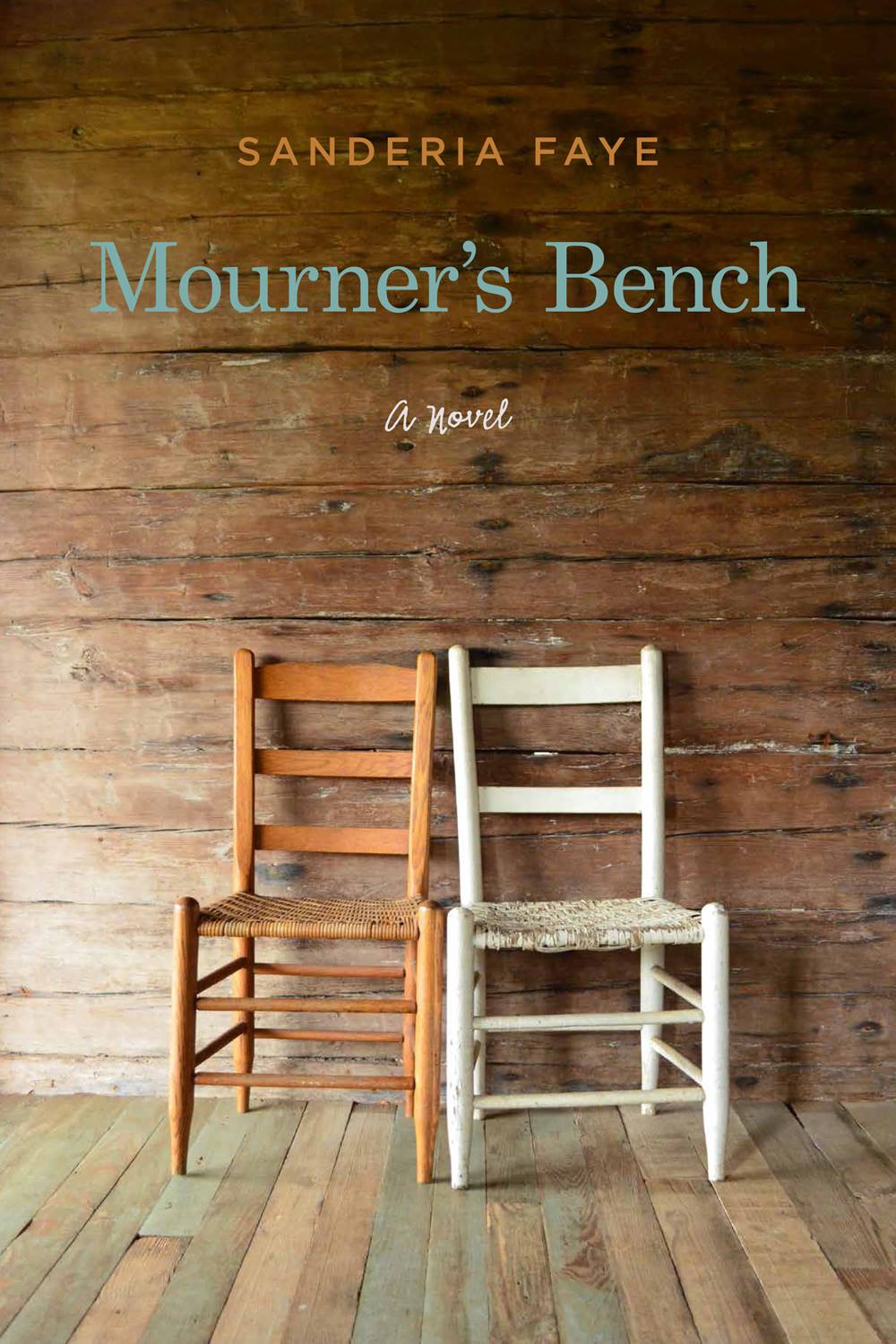“With Mourner’s Bench, Sanderia Faye announces herself as a bold, at times intoxicating, original voice in American fiction. This is a stunning début.”
Dennis Lehane, author of Gone Baby Gone, Mystic River, & Shutter Island
“Reading [this] story, no matter what you believe history might have taught us since, you feel as if the questions of racial justice are not only unresolved but barely yet asked.”
Kevin Brockmeier, author of The Brief History of the Dead
—Vivienne Schiffer, Camp Nine: A Novel
NEWS
UNT English doctoral student wins prestigious Legacy Award
DENTON (UNT), Texas – Sanderia Faye, University of North Texas Ph.D. student in English, has won the nation’s top honor for a debut novel by an African American writer – the Zora Neale Hurston/Richard Wright Foundation 2016 Legacy Award.
Faye earned the honor in the Debut Fiction category for her book Mourner’s Bench (University of Arkansas Press), a novel about a woman who gets caught up in the 1960s civil rights movement as told by her 8-year-old daughter. The book is inspired by her love of Harper Lee’s To Kill A Mockingbird which often made her ask herself, “What if Scout Finch was African American? What would that story be?”
Sanderia Faye’s ‘Mourner’s Bench’ Wins Hurston/Wright Legacy Award Acceptance Speech
Sanderia Faye’s ‘Mourner’s Bench’ Wins Hurston/Wright Legacy Award
Sanderia Faye’s Mourner’s Bench wins the Hurston/Wright Legacy Award for Debut Fiction.
15th annual Hurston/Wright Foundation Legacy Awards ceremony diary
Sanderia Faye’s novel Mourner’s Bench wins for debut fiction.
15th annual Hurston/Wright Foundation Legacy Awards ceremony photos
http://www.hurstonwright.org/2016-legacy-awards-photos/
Mourner’s Bench Nominated for Hurston/Wright Legacy Award by Eldorado Times
http://www.pressreader.com/usa/el-dorado-news-times/20160804/281818578211052
Sanderia Faye novel nominated for Hurston/Wright Legacy Award by Arkansas Times
Set in a fictional Arkansas town called Maeby, the novel incorporates figures from Arkansas history like Daisy Bates and civil rights attorney John Walker…
Mourner’s Bench Included in the Lemonade (Beyonce) Syllabus
Mourner’s Bench Nominated for the Hurston/Wright Legacy Award
The Hurston/Wright Legacy Award TM honors the best in Black literature in the United States and around the globe. Introduced in 2001, the Legacy Award was the first national award presented to Black writers by a national organization of Black writers. Fiction, nonfiction and poetry honorees are selected in a juried competition. Merit awards are given at the discretion of the Board of Directors. Each October, the award winners are celebrated during a gala that draws hundreds of literary stars, readers, and representatives of the publishing industry, the arts, media, politics, and academia.
My Protests and Prayers in Dallas by Sanderia Faye–New York Times Article
Dallas — On Friday, the city of Dallas was in mourning, and so was I.
We lost five police officers. They were gunned down at a peaceful protest on Thursday night that took place just a few blocks from where I live. I was at that protest too.
KUAR’s Readers Review: Mourner’s Bench By KAREN TRICOT STEWARD • SEP 6, 2015
In partnership with the Central Arkansas Library System, KUAR introduces community conversations for book lovers, KUAR's Readers Review. Please click on link below to listen to the Readers Review KUAR's Readers Review: Mourner's Bench By KAREN TRICOT STEWARD • SEP 6,...
An Evening With Sanderia Faye @ Unitarian Universalist Fellowship
No Results Found
The page you requested could not be found. Try refining your search, or use the navigation above to locate the post.
CONTACT SANDERIA FAYE




